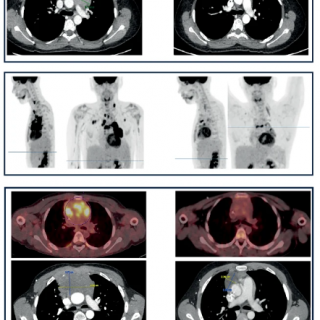New Publication in Nature Communications: Targeting metabolic vulnerabilities in PI3K-driven leukemia

The PI3K (phosphoinositide 3-kinase) signaling pathway is a key driver of metabolic plasticity in aggressive tumors, enabling them to adapt to their microenvironment and resist treatment. However, effectively targeting these cancers remains a major challenge.
In their study published in Nature Communications, Guillaume P. Andrieu et al. propose a promising new therapeutic approach to target leukemias harboring PI3K pathway alterations, which are often associated with poor prognosis and aggressive disease.
By combining mTOR inhibition, using Temsirolimus, with glutamine degradation using the enzyme L-asparaginase Erwinase, the team demonstrates a potent metabolic synthetic lethality, validated both in preclinical models and in patients with refractory T-cell acute lymphoblastic leukemia (T-ALL) or T-cell lymphoblastic lymphoma (T-LL).
Clinically, five patients with refractory T-ALL or T-LL were treated with this approach. All achieved complete remission, enabling hematopoietic stem cell transplantation (HSCT) for three of them.
These findings open new therapeutic perspectives and support the rationale for targeting oncogenic metabolic dependencies in PI3K-altered cancers.
Read the full study: https://www.nature.com/articles/s41467-025-57225-7